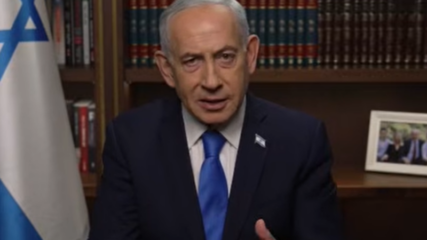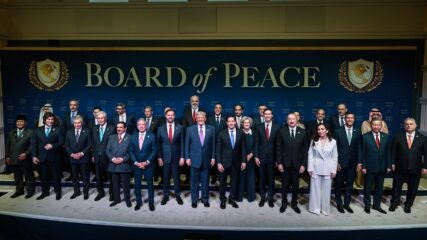March 18, 1975
In the aftermath of the October 1973 war, U.S. diplomacy engaged Egypt and Israel in a series of negotiations to separate their respective armies and prevent another conflict. Secretary of State Henry Kissinger pushed hard for Israeli withdrawal from the Sinai Peninsula, particularly from the strategic passes and oil fields. Israeli Prime Minister Yitzhak Rabin told Kissinger that if the Israeli government was to undertake such a withdrawal with Knesset approval, he would need Egyptian President Anwar Sadat to agree that “Egypt and Israel undertake not to resort to the use of force and to resolve all disputes between them by negotiations and other peaceful means. They will refrain from permitting, encouraging, assisting or participating in any military, paramilitary or hostile actions, from any warlike or hostile acts, and any other form of warfare or hostile activity against the other party anywhere.”
Sadat balked because he felt that these conditions were tantamount to signing a treaty with Israel while Israel was still in possession of Egyptian Sinai. A diplomatic impasse ensued. Kissinger believed that Rabin and the Israelis were unreasonable. President Gerald Ford told Kissinger that the United States would not “isolate itself from the rest of the world to stand behind Israeli intransigence.”
For Israel, it was a question of returning significant territory captured in 1967 for something less than a full peace.
From March until late summer 1975, the U.S. administration undertakes a “reassessment” of the U.S.-Israel relationship, creating enormous tension between the executive branch and the Israeli government. Kissinger freezes arms deliveries to Israel, particularly F-15 aircraft, and recommends that “every department should put Israeli activities at the bottom of the list.”
The U.S. Senate, led by Sen. Scoop Jackson (D-Wash.), strongly supports Israel in its tussle with the White House, forcing Ford and Kissinger to relent. On Sept. 1, Israel and Egypt sign a second separation-of-forces agreement, reflecting Israel’s terms. Israel shows its resolve not to succumb to real pressure when asked to make territorial withdrawals it deems too much for too little in return diplomatically.
Over the next four decades, Israel similarly balks about territorial concessions to Arab sides when it feels it is either compromising its security or receiving less diplomatically than it believes it needs. In current negotiation terms, it means: Will Israel exchange West Bank lands, including possibly portions of Jerusalem, for less than recognition of Israel “as a Jewish state”?










